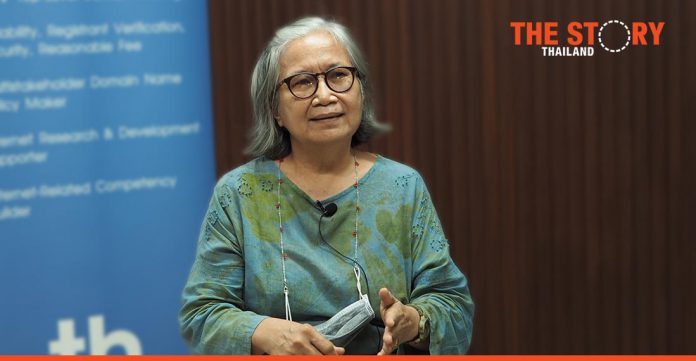Thai Internet Pioneer sees much to be worried about
Thirty years ago, an English computer scientist who was working at CERN, the large-particle physics laboratory in Switzerland, posted the first web page on what was then a rapidly expanding world-wide network of computers, and the internet, with its first web-page editor and browser – WorldWideWeb.app – was born.
- Speedy Detection of 13 Cancer Types with microRNA Detection Technology
- Toyota Mobility Foundation announces six finalists
Thailand’s computer owners were quick to recognize the dizzying possibilities of the global network that was free for all to enjoy. In the three decades since then, Thais have become so familiar with the internet that it has become a necessity; ‘connectivity’ has become the name of the game, and far more than simply providing convenience in everyday life, the internet has become the basis for social, economic, technological, medical and educational change.
Yet pioneers of Thailand’s internet development, like Dr. Kanchana Kanchanasut, are still worried about the all-pervading communication network they have helped to create. Now a vice chair of the Thai Network Information Center Foundation (THNICF), she told The Story Thailand that the country’s internet development was both admirable and worrying.
The internet has always been a gateway to various innovations and technologies, developed in a comprehensive way according to perceptions of consumer needs. But cyberthreats became a reality soon after people, companies and governments were tempted to depend upon its presence.
Kanchana has noticed all of these things as she worked behind the scenes as an internet developer. She also recognized how unready various structures were to cope with internet innovations, and how unwilling people were to deal with the “digital divide”, which affects overall digital literacy in Thailand.
She says “digital divide” refers to the fact that some people can easily access the internet, while others cannot. Without access, these people cannot take advantage of internet resources or online information to upgrade their knowledge, grasp opportunities, improve their quality of life, and access basic government services.
Regarding structural issues, Kanchana says there are two parts: core infrastructure and end-user infrastructure, and one of the clearest examples of this is the 4G/5G system.
She believes that allowing service providers to handle infrastructure in their own right – from fiber-optic cable installation to the delivery of services to end users – results in higher service fees to the public. Often, these fees are too high, even for some city residents. This indicates that internet-infrastructure development may not always reduce social inequality, because in many cases the internet itself widens the gap.
The digital (or internet) divide in Thailand also applies to different levels of English-language knowledge among Thais. Kanchana says internet usage requires more English knowledge than Thai-language commands, so people in rural areas have difficulty using the internet. Most of them rely on their children or grandchildren when they need to access internet-based services. She also believes that people with physical disabilities also find Thailand’s internet system “not very friendly”.
Kanchana points to a worrying but growing trend in the world’s internet industry that is also affecting Thailand: companies are competing on platform creation. Some have also made the extreme move of developing their own infrastructure, as well.
“We are worried that the internet may, in the end, be divided. In the beginning, the internet connected all users in the same network, but this growing trend raises the possibility that, in the future, each operator may have their own network. Where there are many operators, there will be many networks. This is kind of scary, and massive benefits are at risk. Underdeveloped nations may find it even harder to get a share of benefits in that scenario,” Kanchana says.
She harkens back to a time when corporate giants with advanced technologies took lots of resources from underdeveloped nations, and says the current situation is pretty much the same. The situation improved somewhat after the arrival of internet, but now, it appears to be heading back to where it was once was.
“Giant tech firms are still around, after all, and these formidable giants are growing even bigger than before,” she warns.





